Recently, loneliness was declared an epidemic by the United States Surgeon General. Finding community on campus can be a challenge for students. The lonely campus podcast shares the experiences of Syracuse University students who have learned to navigate campus, which can be lonely at times, and make it their own. The podcast seeks to foster a sense belonging for all students as it outlines the steps they have taken to build their campus community. lonely campus is produced by ODI Administrative Fellow and Associate Director, TRIO Student Support Services Amy Messersmith.
Creators and Guests

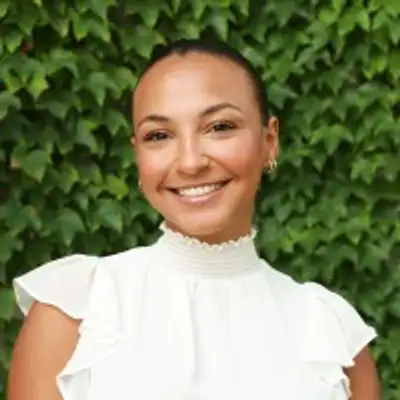
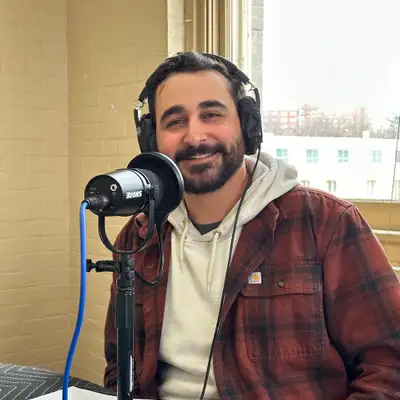
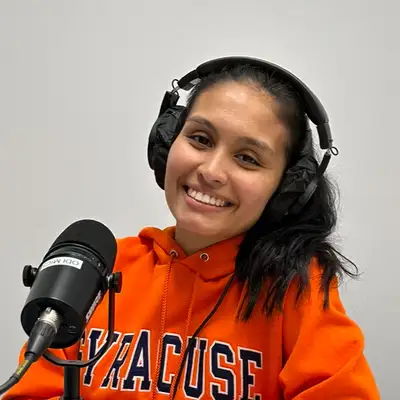
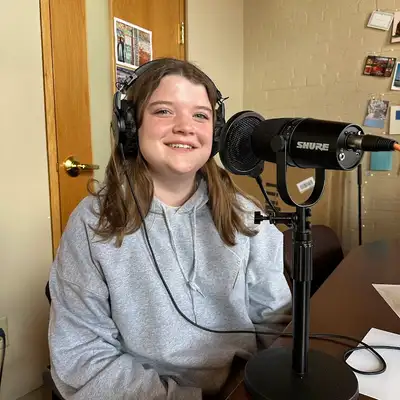
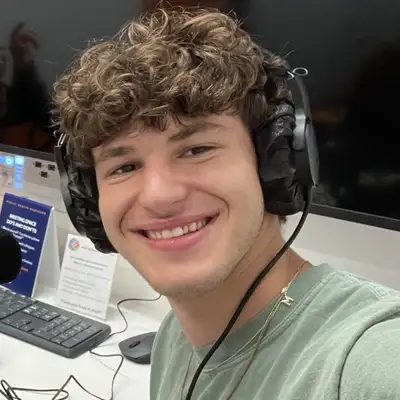
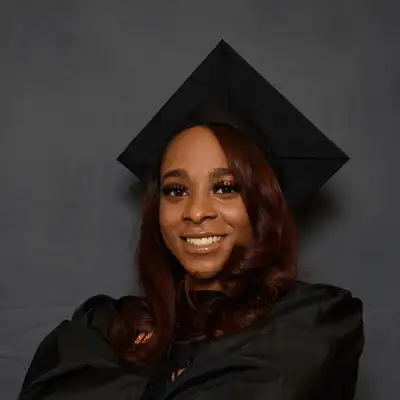
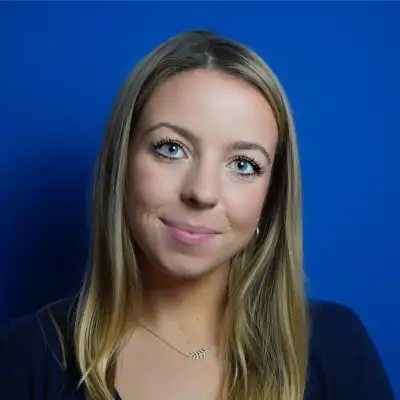
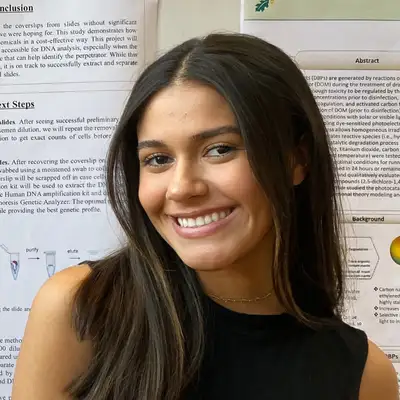


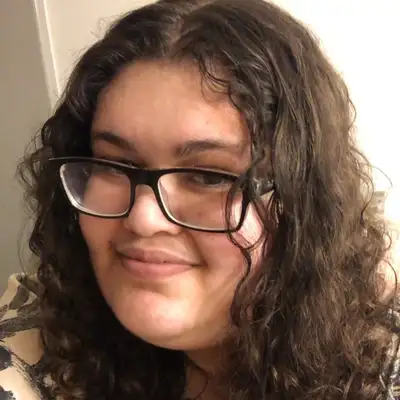
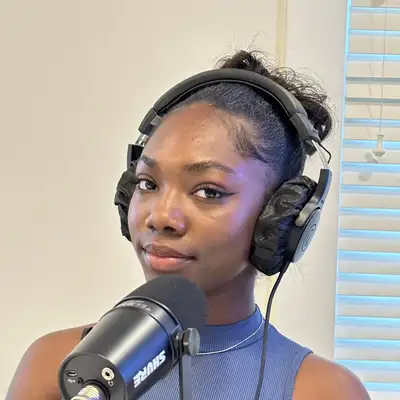
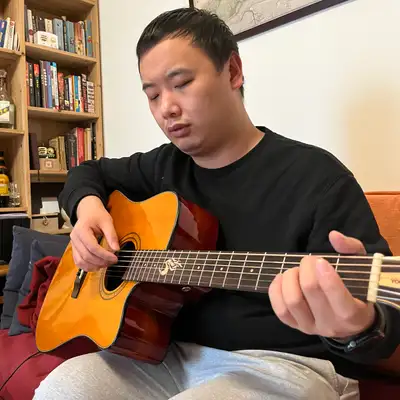
What is lonely campus podcast ?
Loneliness in the United States was declared an epidemic recently by the Surgeon General. Finding community on campus – especially post-pandemic – can be a challenge for students coming to college their first year. The purpose of the lonely campus podcast is to let students who are feeling lonely know that they are not alone, and features students who are willing to talk about experiencing loneliness. Students then share the steps they took to find their community and a sense of belonging. The podcast seeks to bring hope and reassurance to the listener, as well as provide concrete steps to take to find community. This podcast is sponsored by Syracuse University's Office of Diversity and Inclusion and produced by Amy Messersmith, an ODI Administrative Fellow.
Episode 8 (Special): Preview of lonely campus podcast episodes for FYS 101
Amy Messersmith 00:00
Amy. Hi everybody. This is Amy Messersmith. I'm the host of the lonely campus podcast, and I'm super excited that FYS 101 is incorporating lonely campus into its curriculum. So a huge thank you to the FYS 101 staff, as well as the staff from the Office of Diversity and Inclusion. This podcast grew out of the ODI administrative fellowship initiative, and they've been incredibly supportive of this project. And I'd also like to acknowledge a GOP, SSS and census, my home base on campus. I'm actually the trio SSS associate director, and podcasting is something I get to do as an added bonus. Just to give a little background on this podcast, the theme is inclusion and belonging. And so, as somebody that was born in Korea, I was adopted, and I grew up in a predominantly white community, this idea of inclusion and belonging is something that I'm incredibly passionate about and something that I'm drawn to do something about. And so lonely campus is a podcast whose target audience is students who have come to campus but have yet to find their sense of belonging and might be feeling some degree of loneliness. And so the thought was, why don't we collect students' stories who have been on campus for a little bit longer, who felt something similar, but then learned the steps that they took to find their community on campus. And so my hope is that students who are listening to this, who are feeling some degree of loneliness, are number one, validated. They know that they are not the only student who has felt this way, and know that it's not personal. There's nothing wrong with you, and know that it's temporary, and hopefully you're inspired by other students' stories to take steps to find your community on campus. The last thing that I would like to do is a heartfelt thank you to all the guests who have come onto this podcast. Please know that it is not easy to come onto a podcast and share your story. And so my hope is that the listener is hearing these stories with an open heart and an open mind and with kindness, and know that every person that came on this podcast did so with the specific intent and hope of helping others by sharing their story with that what I've done is created a little bit of a highlight reel. So I've taken snippets from different episodes, and I've shared them with you here so that you can get a sense of the personality and the flavor and the energy of the guest. And so for the FYS 101 students who have to pick a particular episode to listen to, hopefully this facilitates the decision. And so without further ado, here is a highlight reel of episodes from the lonely campus podcast enjoy. And I'm very excited to be here at 119 Euclid talking with Nate brown.
Nate brown 03:04
It's nice to be here.
Amy Messersmith 03:04
Can you talk a little bit about what it was like to come to campus for the first time? Like what your move in experience was like, maybe the first couple days of orientation, being in this new environment.
Nate Brown 03:16
So the move in process, to me, it was, I love, I like the movement process. I love that. I loved how everybody was nervous, like, as, you know, it's me. I can sense it, you know, everybody was a little bit anxious with me new people, but we were also, like, excited to meet new people at the same time. And when I go out into my dorm and I look down in my hallways, I see that, you know, I don't see a lot of people, like, generally from my community. There's a lot of Caucasians, like, around me. So it's like, they're they're all, like, bonding in a way. So, like, as the week progresses, as moving, like, it's deeper, I see everybody already, you know, bonding over their old communities where they're like, race and it's like, now you have to venture outwards, more beyond your dorm, or more beyond your hall, to, like find that same community that everybody else was finding there.
Amy Messersmith 04:04
My unproven theory is that the vast majority of Caucasian students that attend su went to predominantly white high schools, and therefore, I think what happens is this idea of like, like clumping together with like or like being attracted to like. And so white students just kind of tend to gravitate towards one another because it's familiar. And on the surface, there's nothing really wrong with that.
Nate Brown 04:33
I was just gonna say that, like, there's really nothing wrong in that fact, because I think students base it more off of just people that are like, similar to who whom they have, like, grown up with, or like the communities they have like, grown up with. So it's I never really like, looked down and like, you know, shamed them for it, or, like, blamed them for it. But it's like, I would kind of like do the same thing. I would try to find the community that most like suits me, or people that are similar to whom I've like grown up with. So I never. Like, really, like, blamed them for it. There was there was never in the wrong. But it's still, like, a problem that needs to be, like, addressed.
Amy Messersmith 05:18
And so today I am here with Trinity, Jennings pagan, and I'm super excited to have this conversation. Welcome Trinity.
Trinity Jennings-Pagan 05:26
Hi everyone. Thank you for having me.
Amy Messersmith 05:30
Do you mind and to whatever degree you're comfortable sharing, like describing what loneliness means to you or what it felt like to you?
Trinity Jennings-Pagan 05:39
Oh, I like that question. Let me think, I'll start with the Summer Start one, because that one was, like, kind of more direct. My feeling during the fall, at the beginning of the fall semester is, like, way more complicated, and because I had people, and I still felt kind of alone a little bit, so during like, for Summer Start, the feeling was more like, I see people that I could be like, cool with, or people who do kind of understand me, like, culturally, I guess, and socially, but I'm with people who don't, if that makes sense, and I told this to the friends that I had at the time, I'm like, I love y'all, like, Y'all are amazing, but I'm seeing there's like, a Tiktok thing. It's like, I'm hearing my people, but I'm not seeing my people type thing. But it was literally that, like, I'm seeing like, all these people who, like, from the no one was from, like, the same country as me, like one of my countries, but like, that's that group, or whatever. I'm like, I know that song too. Or it's like, it's so it's so funny, it's so small and so little, but it's like, it was so like, I'm like, like, you know, like, when they're right there, and it's like, now I know all of them, but it's just like, at the time I was I felt so, like, disconnected. And that's something that, like, I never necessarily felt before. It felt I remember, like, FaceTiming my friends. I'm like, guys, like, I'm seeing my people, but I'm not with my people, and they're like, girl just lost off of them. I'm like, Yeah, you're at your mind, like, I'm not, not doing that.
Amy Messersmith 07:18
And so today, we are popping up at 113 Euclid, and I'm super excited to be sitting here with Nate Leforme, how are you?
Nate Leforme 07:27
I'm well, thanks for inviting me.
Amy Messersmith 07:30
I know that you said that you were a transfer student, and so I think this question might land a little bit differently as a transfer student. But do you mind sharing a little bit about maybe what you imagined college to be like, or what you imagined coming to su would be like?
Nate Leforme 07:47
So imagining how to come here was, was was really, really difficult. Like this is the most people have ever been around. Like, growing up on reservation, you don't meet a lot of people. You know, it was really intimidating, because there's a lot of rules on the college campuses that you have to follow, like you can't park in this spot, but you can park in this one. You know, you can't move in earlier than this time, but not later this time, you know, just arbitrary, meaningless rules like that. So yeah, that's how that went. But it was, it was fine.
Amy Messersmith 08:31
Im just kind of curious, how do you navigate having to live within these different rules all of a sudden.
Nate Leforme 08:41
It’s pretty rough, because it's kind of like you have to learn a new language. You have to learn a new culture, like a culture shock type of thing, where you don't know how to act, but everyone around you expects you to act this way. So it's like, when you don't act that way, they take it as a you're a fringe personality or something or, you know, and I understand, because culture is so ingrained in the human, human brain, where we create these tribes, and then we assign value based on if someone follows The rules of the tribe. So learning the new culture is difficult because they're all implicit rules. They don't really everyone else here knows what to do, but I don't that's, I guess, is the best way to say it. So when I ask like people like you and those in authority, they're like, I've never been asked that question before. Let me. Let me. Let me help you. You know, so I it's very vulnerable position to put yourself in, and that can be intimidating. It's it's a bit difficult, but I, I've been able to survive and get through.
Amy Messersmith 10:11
And I'm super excited to have popped up in the IC and talking with one of our posse students, and so it is my distinct honor and pleasure to introduce Julian Barrios. Julian, welcome.
Julian Barrios 10:25
Thank you very much for having me. I'm very excited, awesome.
Amy Messersmith 10:28
So another thing that you had mentioned in terms of, you know, being a student at SU was the socio economic differences, because we're a private institution, and that's something that you know, I don't know if we talk about as much, and so I think, you know, we want to be sensitive, obviously, as we talk about, but whatever you're comfortable sharing.
Julian Barrios 10:50
yeah, of course, I grew up in a economically lower middle um, so that was definitely something to acknowledge before coming here. Um, so, for instance, like, I've had conversations with my mom about, you know, coming to Syracuse, watch what you're spending, yeah, you know, taking into account, um, I've, I've had to contribute into, like, you know, my college pricings as well, um, fundings. So that's something to acknowledge as well, because most people here don't have to, can't relate to that. Um, so for instance, like, friends are going out. Hey guys, I gotta hold back on this when I can. Yeah, it's just something to, like, acknowledge before you come and at times it can get you down a little bit, like they can, oh, let's just take an Uber to this place and eat over here. Because, like, I can't do that. Yeah. So you'll you, I've, like, missed out on some things sometimes, and it doesn't feel the greatest. But like, then again, surround yourself with friends that make you feel good about it. So like, for instance, I'll never hold my friends back from going out, but saying, like, Hey, I can't do that. But like, when you guys get back, let me know we'll hang out. Or friends saying, all right, you know you're right. Like, we've been going out pretty often. Let's, let's staying in on this one. So stuff like that. But that's definitely something to be conscious about.
Amy Messersmith 11:57
Have you ever had to have those kind of conversations.
Julian Barrios 12:01
It's less like having conversations with people, because, I mean, for me, like, just that doesn't bother me anymore. I've been surrounded my whole life. I'm used to it like, I I've like, I know, like, my mom and I to have this joke where it's like, if, like, spending a little too much this week, this week, it's like, all right, rice and eggs for the week, and we're chilling. So, um, just delicious, exactly. Um, so stuff like that, um, I've become accustomed to it, but like, more like things, I'll have to think about where it's like, people saying, oh, it's like, I'll just get my dad to pay for it. Like, I'll get my grandma to pay for it. It's like, I I've never heard that, right? Um, so stuff like that, like, you'll hear things sometimes and it's like, oh, that's I forgot. That's like, a possibility for some people. Like, that's crazy to think about, but like, you know, kind of understanding and, like you said, talking to your friends, kind of letting you know, hey, I I can't do it. Like I fit, like, once the big account is zero, like, there's nothing I can do, right? Um, so yeah, just talking about it and being weary of it before you come.
Amy Messersmith 13:08
this particular episode is a little bit different, because it was recorded during the spring 2024 campus forum sponsored by the Office of Diversity and Inclusion.
Rose 13:18
So my name is Rose. I'm an international student from Egypt, and I'm doing my master's in Cultural Foundations of Education here at SU
Kendall 13:25
So my name is Kendall Edwards. I'm a second year Master's student. I'm getting my master's in teaching and curriculum writing through the School of Education.
Wei Jun 13:33
My name is Wei Jun and I'm also a master's student, but first year in Cultural Foundations of Education at School of Education,
Amy Messersmith 13:43
that's fantastic. So the first question we have today is, what made you want to come and study at Syracuse?
Rose 13:52
So my focus was very strongly on disability studies and disability justice, but more so than that, the intersection of disability and queerness and race in education. And I think the Cultural Foundations of Education Department here at SU really is excellent in terms of getting to do that intersectional work and not necessarily feeling like you have to be doing work on a specific access or within a specific body of work or field of study.
Kendall 14:21
I'm very passionate about books and writing, and I've always been like a lover of books and reading and writing, and I feel like our curriculums there's a lot of struggle, and primarily minority struggle, so I want to create a curriculum where kids can fall in love with reading and still see themselves, but see themselves as like dreamers and smart and innovative versus I'm going through this struggle time and time again. It needs an escape, and if reading is that escape, and so be it.
Wei Jun 14:51
So for me, it's the first time for me to leave China for study, coming here, and I came here because I. I'm very interested in disability related issues because I'm blind, I myself am a person with a disability, and according to my experience, I found that there is still a lot of space for improvement in China in terms of the education for people with disabilities. And I just come here to learn some advanced experiences and to find if there are anything that I can take back to China to improve our education for people with disabilities.
Amy Messersmith 15:42
You and so I am super excited to introduce Jalis Augusto. Um, welcome Jalyss.
Jalyss Agosto 15:50
Thanks. Amy, hello, everyone. So, um, you know those feelings of loneliness definitely were during the summer, but like I said, it's definitely gotten better since I've let my guard down. Yeah, like, putting your stuff out there. I think what is, is my biggest advice. Like, it's not like, you know, when I talk to other students, you'd be like, Why are you meeting with all these professors and faculty and, like, what? Like, what does that do? And I'm like, that does more than, you know, they have these jobs because they want to see us succeed. Like they're here dealing with students and, you know different departments, because that's what they specialize in. That's you know. And then if you sit down and speak with these faculty, and you know professors, you'll sit down and hear their story as well and realize that they they're more wiser than us, right? Because lived a longer life, you know. But also similar stories to understand, like, which goes back to then you don't feel alone, because you are like, wow. Like, I can relate to you, like, and then they can guide you and be your mentor. So I think that's my biggest thing, is like putting yourself out there, I put myself out there, I reached out. I was like, hey, like, can we talk like, I would love to get to meet you. I'd love to get to know you. And now I just have this support system at Syracuse now that's just growing bit by bit by bit, because I took those chances to introduce myself and was like, you know, this is who I am. And as much as you're a resource to me, I would love to be a resource resource to you.
Amy Messersmith 17:28
And so I'm super excited to be here with student veteran Andrew Hooper, welcome. Thank you for having me, because the name of this podcast is called lonely campus. At what point did you realize that you were experiencing feelings of loneliness? Or at what point were you aware that you were missing a sense of belonging here?
Andrew Hooper 17:48
So ever since I got out of the service back in February, 2022 the sense of loneliness has kind of always been there, because being in the service for that long, and being around the same people so often, and going on training exercises, and just being in really crappy situations with your teammates, who eventually turn to brothers because of you're all in the same situation together out in the field, whether it's rain, snow, hurricane, tornado, you're in it with them, and you build these friendships, these bonds that, just like kind of more or less lasts forever. And then the army, or the military in general, has a funny way of dismantling those friendships with, oh, this person's getting PCs to a different duty station. This person's getting out of the army. Me, it was, I'm getting medically retired. And I know I'm not the only veteran that feels this, but a lot of veterans and soldiers when they're in they didn't really have a good family life before they joined. I was fortunate enough to have a good family life growing up as a kid with my folks and my older sister, but the family that I made while I was in is it's family that's not blood. It's family that you made over hardships, over trauma, over training exercises, over nights at the bar, fights, you name it, it didn't matter what walk of life you were from, skin color. It didn't matter you. It's a family that you made, and when you leave the service, you lose that family because you're no longer around them all day, every day, you're you're alone, and that's still something that I do struggle with from time to time, but having my fiance there with me, it, it helps a lot, but I still kind of feel that that gap within me, that hole, that when I got out, it is now void, and I truly don't know if that void will ever be filled again.
Amy Messersmith 19:52
So today I'm super excited to be sitting here with Joanna Williamson. And so I think one of the things that you can do to. Help people feel less alone is just to know that they are not the only ones experiencing this. And so that's kind of the purpose of the podcast.
Jennalyn Williamson 20:07
I would have loved to known that somebody was on that struggle bus with me, and that not everybody's called experience looks the exact same. It's not the massive friend group and the whole big party of the year, and just the all the crazy things that you see, it's, it's really is different for everybody, and I don't think that there's a right way to do it, but I was really stuck in that mindset, that I was behind and then I was missing out on the college experience.
Amy Messersmith 20:37
How did you go about coping with your feelings of loneliness and lack of sense of belonging. And you know, whatever you're comfortable sharing, you're welcome to share, but whatever is comfortable for you.
Jennalyn Williamson 20:49
It was really hard for me. I didn't know exactly what to do. I tried counseling at the Barnes center because I thought maybe that could help, and I actually submitted an application to transfer for the second semester, because I thought there must be something wrong with the school if I'm trying so hard and putting in all this effort to connect with people, and it's not working. It's got to be the school and not me at this point. And it didn't end up working out. So I decided that I was going to finish out the year give it another chance and just see if I could make it better in the spring.
Amy Messersmith 21:23
Could you talk a little bit about the different efforts that you had made in your fall semester to connect with people?
Jennalyn Williamson 21:32
I definitely I tried sitting near people in classes that I thought were nice and friendly, but I did have the expectation, if I had that they were going to talk to me, because I would be weird if I talked to them, but I would have been so excited if they talked to me. So I don't know, I had that expectation that I was going to be strange if I talked to them. I also applied to a wide variety of clubs. I got into one. I got into the autothon leadership program. Yay. Also, like I mentioned earlier, I went around door to door in the first few weeks, trying to meet friends and people on my floor. And just like being around, going to things, I thought I'd meet people. I went to some orange after dark events that maybe I'd sit next to someone and we'd be best friends for life. But it did not work.
Amy Messersmith 22:19
So what steps did you take to figure out the spaces and places on campus where you did find your sense of belonging?
Jennalyn Williamson 22:25
So I knew coming into second semester that I needed to do something differently. I decided that I was going to try and make a friend in every class, and one of the friends that I met on my floor, she said, Why don't you try going through recruitment with me? If you don't like it, you can just drop and you can say that you did it. So I decided to rush for social Greek life, and I fell in love. I really did find my place through theta here on campus.
Amy Messersmith 23:03
these last two previews of podcasts have a little bit of a different format, because they were actually recorded back in spring 2022 and were retrofitting it into the lonely campus podcast. But because the theme of these podcasts fits under inclusion and belonging, we think that they are a valuable contribution to the work of lonely campus. This is a two part series focused on a student named Alyssa Sutherland, who, at the time, was a first year student who recorded a two part podcast series focused on what it's like to be a woman of color rushing Panhellenic sororities at Syracuse University. First, you're going to hear a snippet from part one of Alissa's podcast series, which does a little bit of a deeper dive into her story. And followed by that is a snippet from the podcast that she produced she facilitated, which is a discussion between herself as a woman of color who went through the rush process in spring 2022 as well as another first year student named Natalia. And they are joined by a member of the Panhellenic executive board, Macy, who, at the time was the Panhellenic recruitment chair. And so without further ado, here's the first part of the lonely campus podcast featuring Alyssa Sutherland,
Alyssa Sutherland 24:24
and we're gonna talk about some sensitive, harder topics. But in no way do I want to feel or in no way do I want to make a listener who's a part of a sorority on this campus or a part of a sorority feel attacked…. I liked every single house that I talked to, every conversation that I had, that my guests had, they were meaningful, and we just went in the direction that was best for us. And you know, I encourage everybody listening, that if you feel targeted somehow with the topics that we're talking about, to take a step back and kind of unpack why you feel that way, because maybe something is wrong in your chapter or within a small pocket in your chapter, and address it. That's That's all we're trying to do here today, is talk about things that need to be talked about. Let's not gloss over the reality of things, that it is just a different situation to navigate as a person of color, and we really can be doing more, I think, to create a safe and comfortable journey and space within their sororities on campus and within the rushing process for women of color, it needs to be addressed. So that's all we're gonna talk about. Guys. You know, it's not deeper than that, even though that is deep, but yeah,
Amy Messersmith 26:18
coming up is the second part, which features a facilitated conversation with Alyssa as host. She invites Natalia to sit down with her at the table, and they are joined by naci, who, back in spring 2022 was the Panhellenic Council's recruitment chair. Overall. What results is a really engaging and authentic conversation.
Alyssa 26:38
So back to the first question, what were your fears as women of color rushing like, what were the things you were most fearing, or were you scared? You know?
Natalia 26:47
I mean, I'm pretty sure I had the fears of like everyone else, but just of like, not getting a bid is one of, like, the biggest things that people like are afraid of. But as like, a person of color, like I felt, I don't know, because I like, I feel like I'm a little bit different. A lot of people say I'm, like, white passing or like, some people are like, No, I can totally tell you're Hispanic. So I feel like I honestly can never tell where I like, stand in that sense. So I was just hoping that, like, they wanted me for me, and I wasn't going to be a diversity pick, and they didn't want me to like, just be there, because I was part of a percentage, you know what I mean. So I definitely wanted them to see like, my actual personality and what I like brought to the table, rather than like what I looked like, even though like, it definitely plays a part in some way.
Alyssa 27:37
Yeah, I think that's an interesting also, kind of perspective from you, who do you do have, like, wider skin, and I guess for some people, they might mistake you as just being white, but like, you want them to recognize it, you know, you don't want them to think you're white, and that's the reason why you're getting in. But you don't want it to be all about that, you know. So I think that's an interesting perspective that you bring, I know, for me, that was a huge reason why I almost didn't rush, and hopefully a big part of the reason why I wanted to make this podcast was so that it could reach other women of color, maybe thinking about rushing on their campus, or even potential Syracuse students coming in this next upcoming fall, just to get this perspective and hear it honestly. Because that was a huge fear on my part, I almost didn't rush at all, because I was really, really worried that it would just, yeah, I would be a token. The token is a really, a really good way to put it, especially if you come if you're a person of color coming from a white community, you really do get out because I've gotten many times. You're not black, Alyssa, like, that doesn't really count. You're not really black because I'm mixed and have, like, straighter hair, or, you know, you kind of fit the acceptable version of what a black woman can be and fit in in a white culture. And I ju st was really tired of having to fit in like that binary. And so coming from Missouri, especially to New York, I was really expecting it to be so different when it comes to race. And I think I was wrong. That was very naive of me to think that it would be this complete 360 to inclusivity, or inclusivity and like respect and equity and and it wasn't, you know, and I think that's something you kind of have to shift. And I felt that, and especially when it comes to an institution like that is predominantly white, and being a person of color and placing yourself in that on purpose. It just comes with a lot, I think, and I know, see, you're not a woman of color, but I still want to hear your fears, I guess, going in, if you can remember back to your freshman year and how they aligned, maybe, or if, when you were rushing, if you ever, if you had friends who were women of. Color, and you guys talked about this, or even as like an ally, if you noticed that
Nacy 30:06
Yeah, one, there is definitely general nervousness that goes through every freshman and sophomore and even in some cases, juniors who go through recruitment. It's a massive process. There's 1000 girls, and you're meeting girls in 13 different houses, and each of them is very, very different, and you're trying to one adapt to college coming out of high school. And I think that transition is difficult for anybody, regardless of if you went to like a prep school or a public school or a Catholic school or a Jew, predominantly Jewish school. I think there is all overall, really difficult transition your first semester of college. It's kind of what I was talking to you guys about. What I was talking to you guys about earlier. And then combined with that, you're going into this process that no matter how it's kind of conveyed, it is a process where there is rejection, and rejection stings, no matter what form of rejection it is. And very, very few people have like, you know, a perfect rush process. So I think me being a lot more introverted at the time, as compared to me being a senior, played a big part in it, because I kind of would see my friends who were these incredibly outgoing, like light up the room, type of people, and I could be or in my head, I kind of just thought, like, I'm not going to be that energy at every single one of these houses for hours a day, and then also just, you know, getting rejected like that sucks. So I think that fear is pretty universal for everybody, and I obviously can't speak to the experiences of a woman of color, but I can only imagine that that rejection might feel as though there is another layer to it with your identity that I can't even experience. So for me to know that, you know this process is really difficult, and that rejection stings like I can only imagine, or try to imagine, the experiences of women of color or queer women, anybody that's not white, straight.
Amy Messersmith 32:11
Yeah, so that wraps up the highlight reel of episodes from the lonely campus podcast. I hope that this made your decision a little bit easier. You might be gravitating towards listening to an episode from somebody whose identity resonates or speaks to you, or you might be drawn towards somebody whose identity you want to learn more about, either way works and so again, thank you for listening, and I hope you enjoyed these episodes. Bye, everybody.